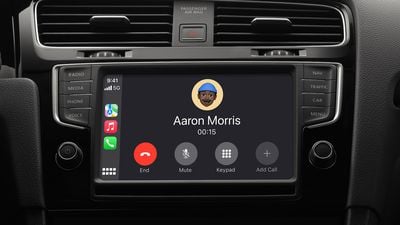GM Says It's Nixing CarPlay To Make Drivers Safer
Earlier this year, General Motors (GM) announced plans to phase out Apple CarPlay and Android Auto in its future electric vehicles, relying instead on an infotainment system developed in collaboration with Google. It wasn't a popular decision among iPhone users, and today GM provided additional information about the decision in an interview with MotorTrend .

According to Tim Babbitt, GM's director of infotainment products, GM is concerned about driver safety. CarPlay and Android Auto can suffer from poor connectivity, slow response times, compatibility and connectivity issues, distracting drivers from the road to troubleshoot their phones.
Babbitt said drivers would be less likely to pick up their phones with an integrated system that doesn't rely on services like 'CarPlay', which would improve road safety. GM doesn't have an infotainment system that's less confusing than 'CarPlay', and it hasn't been tested.
Babbitt cited data from JD Power showing that CarPlay and Android Auto problems are common among car owners, with consumers often blaming the automaker rather than Apple or Google.
The infotainment system that GM plans to replace CarPlay will include Google apps, including Google Maps and Google Assistant for voice commands, rather than a third-party navigation system. As MotorTrend noted, eliminating CarPlay would give GM more control over driver data and allow GM to offer subscription services and apps that let GM buy groceries, gas and other small items.
In August, GM said that choosing not to offer CarPlay would allow more information about consumption situations to help with route navigation and provide a better user experience.
CarPlay will be removed from Buick, Cadillac, Chevrolet and GMC electric vehicles. GM's internal combustion engines will continue to be compatible with CarPlay until it is phased out in 2035 in favor of an all-electric lineup.









